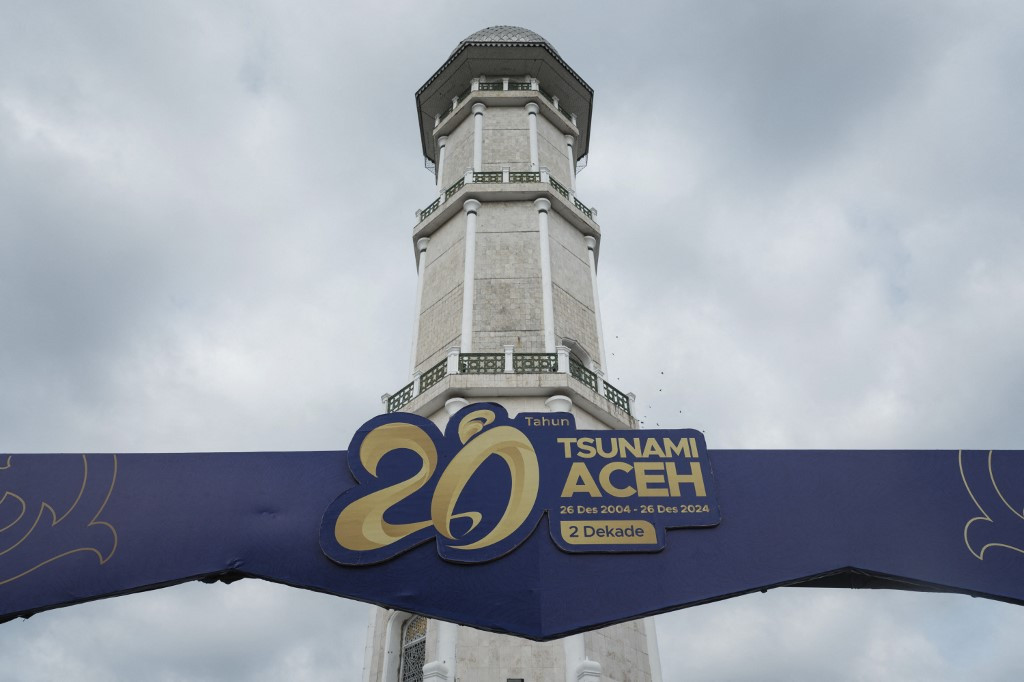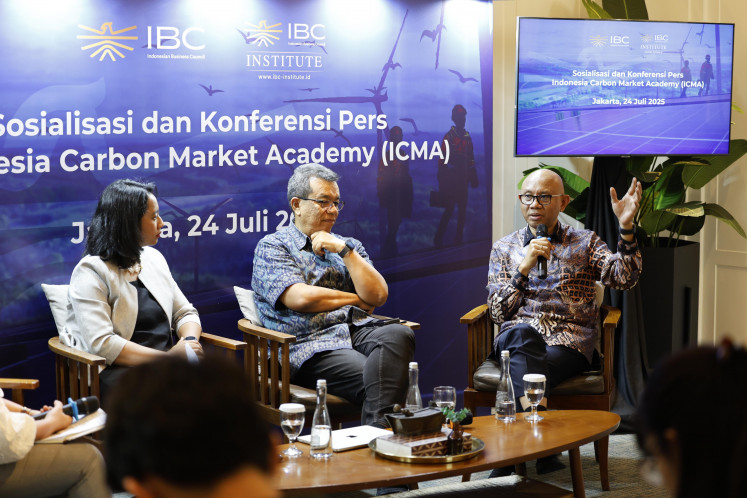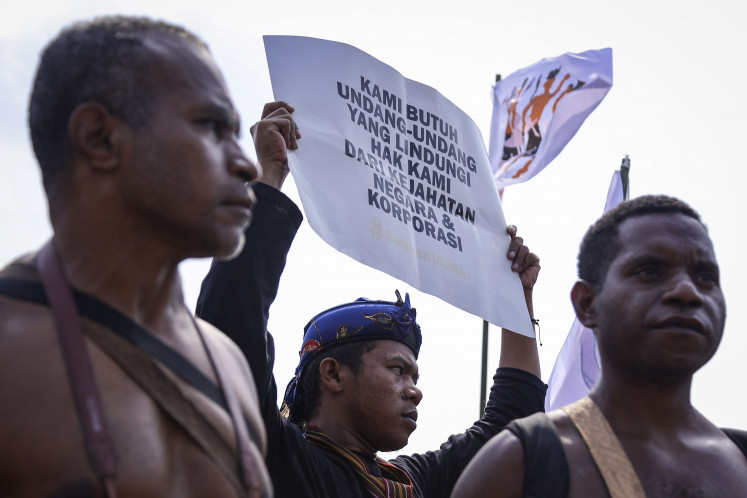Popular Reads
Top Results
Can't find what you're looking for?
View all search resultsPopular Reads
Top Results
Can't find what you're looking for?
View all search resultsPeace with dignity: Reflections on a documentary of the Aceh peace process
A recently screened documentary on the Aceh peace process emphasizes that dignity and humanity from both sides of the negotiating table are key to resolving conflict toward building lasting peace.
Change text size
Gift Premium Articles
to Anyone
D
r. Dino Patti Djalal of the Foreign Policy Community of Indonesia (FPCI) recently produced a documentary about the peace process in Aceh: The Last Accord: War, Apocalypse, and Peace in Aceh. This documentary, which examines an important conflict resolution case in Southeast Asia, showcases the efforts of both the Indonesian government and the Free Aceh Movement (GAM) in achieving peace, as well as explores the sentiments and reflections of those in leadership roles.
The documentary’s ability to put a human face on the conflict is its strength. By presenting perspectives from both sides, it goes beyond simply labeling suppressors and victims, and instead uncovers the complex motivations, fears and hopes that fueled the armed conflict of nearly 30 years.
Jusuf Kalla acknowledged that the resource-rich region of Aceh was feeling neglected by the central government in Jakarta, which contributed to the rise of GAM and a seemingly never-ending cycle of violence.
The documentary begins with the tragic backdrop of the tsunami that devastated Aceh and claimed over 150,000 lives. This natural disaster served as a pivotal moment, as it helped both sides to reconnect with their shared humanity. This is a central theme of the documentary, emphasizing dignity as a crucial component of peacebuilding.
By highlighting dignity, humanity and the impact of the 2004 tsunami, the documentary provides a balanced perspective that illustrates how history influences the path toward a peaceful future.
In his brief remarks before the screening, Dino Djalal said the Aceh peace process exemplified how conflicting groups can work toward peace while upholding dignity and rediscovering their humanity.
Donna Hicks, in her book about dignity and conflict resolution, argues that the desire for dignity is a fundamental human value. Consequently, restoring dignity is essential for successful peace solutions. The film captures this transformation through interviews with key figures, who share their views on how the tsunami shifted their focus from conflict to survival and rebuilding together.
The core part of the documentary certainly focuses on the Helsinki peace process, led by former Finnish president Martti Ahtisaari. Unlike previous initiatives, this process emphasized dialogue, respect and the inclusion of all stakeholders.
Ahtisaari’s impartial and compassionate approach created a safe space for both sides to express their concerns and hopes. This led to the conclusion of the 2005 Helsinki Memorandum of Understanding (MoU), which marked the end of the conflict and a new beginning for Aceh. This agreement addressed important issues, such as political participation, rule of law, economic development and social reintegration of former combatants.
The documentary outlines the negotiations, underlining the courage and compromise required for resolution. It also explores the emotional journey of leaders who had to overcome deep-seated animosity and fear to embrace peace.
Additionally, it reflects on earlier peace attempts, particularly the Cessation of Hostilities Agreement (COHA) in 2002, facilitated by the Henry Dunant Centre (HDC). It is worth noting that while COHA was a significant step, it collapsed after five months due to distrust, unmet expectations and failure to address the conflict’s underlying issues. The film provides an examination of these shortcomings, offering insights from both sides and highlighting the necessity of addressing emotional wounds in peace efforts.
For those interested in conflict resolutions, the Aceh peace process provides valuable lessons that may be relevant for different parts of the globe.
First, it illustrates the importance of considering the emotional and psychological aspects of conflict. The documentary demonstrates that peace involves more than political agreements; it requires healing hearts and restoring dignity.
Second, it emphasizes the need for inclusivity and transparency in peace negotiations. In critical moments, an honest facilitator can jump in the discussions to offer valuable insights to bridge differences. This approach not only strengthens the credibility of the peace agreement but also lays the groundwork for long-term development and social cohesion.
Third, a rare and unexpected outlier event – or a black swan event, to use the term coined by Nassim Taleb – can serve as catalysts for change. In Aceh’s case, this was the tsunami: Disasters can allow for healing by changing what people care about and boosting empathy.
Ultimately, the Aceh peace process shows Indonesia’s commitment to peace, both internally and externally. By resolving the Aceh conflict, the country demonstrated it could “walk the talk”, building on its past experiences in facilitating peace talks in Cambodia and the southern Philippines.
A small thing that is missing in this documentary, however, is the perspective from people with military and diplomatic backgrounds. They also participated in the preliminary talks with the blessing of then-president Abdurrachman Wahid, which was an unprecedented move during that period.
Despite the failure of COHA, the participation of these individuals contributed to building mutual trust, and eventually paved the way for further dialogue. A comprehensive study or documentary of the Aceh peace process should include their perspectives to provide a full and accurate view of this historic event.
Apart from this small omission, Dino Patti Djalal and the FPCI deserve praise for this historical account, presented in a moving documentary as a key resource for peace advocacy.
By showcasing the Aceh peace process, FPCI helps prevent “dementia” toward history, where societies forget important lessons and fall easily into repeating past errors. This documentary is not just recounting history. It serves as a reminder that peace is possible, even in difficult circumstances, when dignity and humanity are given importance.
---
The writer is a senior diplomat and a member of the Governing Council of the ASEAN Institute for Peace and Reconciliation. The views expressed are personal.











